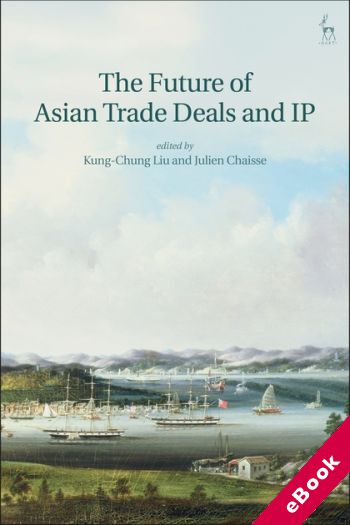
The device(s) you use to access the eBook content must be authorized with an Adobe ID before you download the product otherwise it will fail to register correctly.
For further information see https://www.wildy.com/ebook-formats
Once the order is confirmed an automated e-mail will be sent to you to allow you to download the eBook.
All eBooks are supplied firm sale and cannot be returned. If you believe there is a fault with your eBook then contact us on ebooks@wildy.com and we will help in resolving the issue. This does not affect your statutory rights.
The pulling out of the Trans-Pacific Partnership (TPP) by the US marks a new era for trade deals and possibly for intellectual property (IP). The TPP is evolving to become the Comprehensive and Progressive Agreement for TPP (CPTPP) as the remaining 11 members try to resurrect the TPP by suspending some of its provisions, over half of which are IP-related. While the TPP excludes the two Asian giants –India and the People’s Republic of China (PRC)– the ongoing Regional Comprehensive Economic Partnership (RCEP) includes both of them.
The first part of this edited collection sets out to re-examine some basic principles of trade negotiation, such as choosing the right representatives to negotiate, enhancing transparency as a cure to the public’s distrust against trade talks; moreover, it analyses how CPTPP might impact on RCEP’s IP chapter and examines the possible norm setters of Asian IP, and focuses on PRC’s trade and IP strategy against the backdrop of the power games between PRC, India and the US.
The second part of the book reflects on issues related to investor-state dispute settlement and its relationship with IP, such as how to re-calibrate the balance in international investment arbitration, the judicialisation of ISD in Singapore, and whether compulsory license of IP constitutes expropriation in India, PRC and select ASEAN countries.
The third part of the book questions and strives to improve some of the proposed IP provisions, and to redefine some aspects of international IP norms, such as pre-grant patent opposition & experimental use exception, patent term extension, patent linkage & data exclusivity for the pharmaceutical sector, plant variety protection, pre-established damages for copyright infringement and the restructuring of copyright limitations in the public interest.